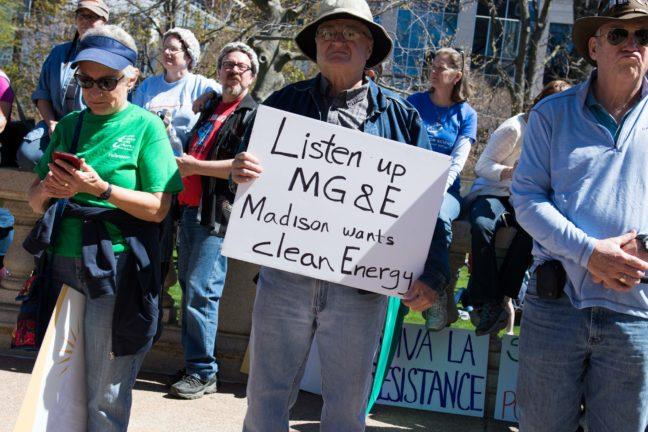A new report co-written by energy policy think tank Energy Innovation and Vibrant Clean Energy found that completely pivoting to solar and renewable energy is around 25 percent cheaper than continuing to use and depend on coal. The country is at a “cost crossover” or, more plainly, entering a crossroads where the operating and continual costs of relying on coal are more expensive than the ever-decreasing cost of solar and renewable energy, the report said.
Within Wisconsin, five coal-powered plants cost more to operate than renewable energy costs, and by 2025, two more plants will pass the same threshold. In general, fossil fuels in Wisconsin cost the state around $14.4 billion, according to a study by the Center on Wisconsin Strategy. Slowly, towns and cities throughout the state are starting to invest more in these alternatives due to their lower cost and net-positive environmental impacts.
Professor says nuclear energy is safest, most practical energy source
The University of Wisconsin has set carbon neutrality goals for the coming decades, which is an ambitious effort coupled by a far-off goal of 2050. Madison proposed two years ago a plan to adopt a completely renewable energy system by 2030. Both initiatives point to the possibility of change on the horizon.
To date, Wisconsin has adopted an ad-hoc approach to dealing with fossil fuels and the increased opportunity to focus on renewable sources.
But that is not enough.
For a long time, many opponents of renewable energy hid their climate denial behind a veneer of purported fiscal responsibility. But now, there is absolutely no reason or excuse for why any state and any city shouldn’t make strides for a full and absolute transition away from fossil fuels.
Both in economic and environmental terms, a full and absolute transition to renewable energy sources is the best thing for the state of Wisconsin.
How Madison restaurants are leading the way in environmental sustainability
From an economic perspective, moving away from coal is in the best interest of the state. As for the billions of dollars spent on fossil fuels, many of it is going to other states, who ship and distribute these dirty energy sources into the state from across the country. And since Wisconsin is so reliant on out-of-state methods of these energy sources, pursuing in-state renewable energy projects could have astounding annual effects for Wisconsin.
Over an estimated $500 million in annual tax revenue could be made by this switch. Additionally, this switch would mean statewide development, installation, construction, maintenance and management jobs. Some estimates suggest there could be double the amount of energy-related jobs currently within the state, boosting the total to around 162,000 positions.
Additionally, clean energy sources are dropping in price and becoming more affordable to use. In recent years, the price of solar energy has dropped over 65 percent, and wind energy prices have dropped 15 percent. The trend points toward a continual drop in renewable energy, and pursuing a full transition aligns with a forward thinking economic policy, while also serving the best interests of our environment.
Wisconsin universities aim to help environment through variety of projects
There’s no question that fossil fuels and non-clean energy sources pose a dangerous and existential threat to the health of our world’s climate and to the lives of those who work with them.
President Donald Trump often pontificates on the idea of “clean coal” — an absurd and crazy thought. Using coal as an energy source is remarkably harmful to the environment and its inhabitants. Those who work in coal mines and plants report respiratory and cardiovascular diseases. Mining and refining coal is extremely dangerous. The pollutants from coal wreak havoc on the surrounding communities, ruining the soil, causing smog and spewing dangerous metals like mercury, arsenic and lead into the air.
The transition to clean energy serves the interests of every Wisconsinite. Pursuing a transition to 100 percent clean and renewable energy gives Wisconsin an opportunity to not only create jobs for thousands of families, but also put our state on the map by taking a bold stance in tackling climate change.
Adam Ramer ([email protected]) is a senior majoring in political science and history.














